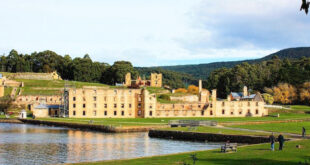Read more from Margaretha here
They came, silently swinging their powerful bodies through the trees, their faces vigilant, velvet dark eyes wary. We froze. My breakfast companions had arrived!
Bleary-eyed, my daughter, two grandchildren and I had checked-in at the airport. Daylight had yet to make its appearance. We were on our way to the jungles of Borneo to see some of the remaining wild-life.
On arrival we were hit by a hot, wet blanket of air that instantly exhausted us. At dawn, after a two hour trek through swampy wetlands, stumbling and sliding, we stood in dense jungle. The air was heavy with a silver mist that almost blanketed the rustling movements of the forest’s inhabitants. The suction of the thick oily mud grabbed our feet, clad in rubber boots topped by waterproof puttees. Our guide Bennie, told us that Orang-utans lived in the swampy wetlands and were treetop dwellers as were various monkeys we would be seeing.
These low wetlands were havens for birds, frogs and of course crocodiles. Slipping and squelching through the jungle before sunrise, following the small infrared torch of our guide had been hard going! The trees dripped their night’s moisture in large drops onto our heads, thorny lianas grabbed our clothes, their hooks tearing into our protective ponchos and I hoped that the swamp dwellers weren’t too hungry today as we slithered along. Although there was no sunlight yet, an erie glow showed the black silhouetted tree-trunks, preventing us crashing into them. A rustling whisper followed by the snapping of small twigs, close to me, almost made me scream. Not a crocodile this time, just a large monitor lizard we had disturbed. Ahead, Bennie pointed her light onto a brilliantly green tree snake, peacefully curled in the crook of a low branch. Its eyes, reflecting the light, observed us wearily.
Bennie stopped and holding up her hand, warned us to be very quiet. Tree tops swayed and as she pointed upwards, we could see the orange-brown silhouettes of several apes that descended from their leafy nests. Here were the creatures that I had long yearned to meet, the most important dwellers of this watery landscape, the endangered Orang-utans. A large mature ape swung in first, head swiveling, eyes watchful to danger. A soft grunt and the female followed. Both hung onto a branch, their bodies slowly relaxing when they felt the area was safe. The female uttered some higher grunts and in tumbled two bright orange youngsters, toddlers really. They rolled and twisted, swung upside down by one leg and tried to dislodge each other from the tree while the parents kept watch. The smallest ball of fluff threw itself against the female’s body, wrapping its arms around her neck and nuzzling her breast. I smiled. They resembled a human family so closely; it was hard to think of them as apes.
It was thrilling to peacefully enjoy this unexpected encounter with the charismatic primates that we have so much in common with. In fact we share 97.4 percent of our DNA with Orang-utans. They have an emotional life, just like we do, which was clearly visible in the love the mother showed for her young. And with a few exceptions, we can eat the four hundred different food types that they eat. They can communicate with each other as well as with us, although they do not have the gift of speech. They build family nests, high in the trees, where they feel safe. But for how much longer? The lush forests around them are rapidly being leveled or burned to the ground, destroying their habitat by the thousands of hectares. Rain and storms sweep the productive soil that covers the land into the rivers, turning the waters brown and muddy. Rivers and streams drag this precious burden to the sea, where they dump it, choking the coral reef life that borders the coast. Fertile has changed to infertile, both on the land as well as in the sea. The bewildered jungle dwellers have lost their homes. Many die from starvation, others are shot. At present, despite the few sanctuaries established for these endangered creatures, human need and greed triumph over our deep-seated knowledge that we are obliterating our own habitat at the same time.
I felt extremely humble and privileged to see some of the endangered Orang-utans in their natural habitat. Maybe, mine was the last generation to be able to do so? What a wonderful birthday gift my daughter had presented me with!







Join the Discussion
Type out your comment here:
You must be logged in to post a comment.